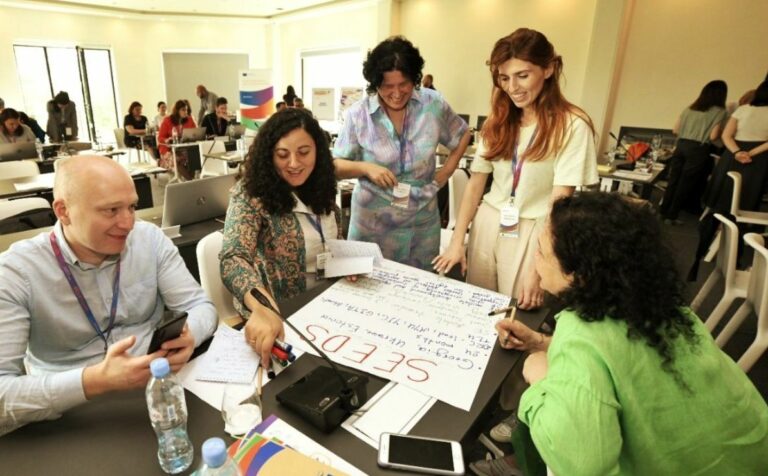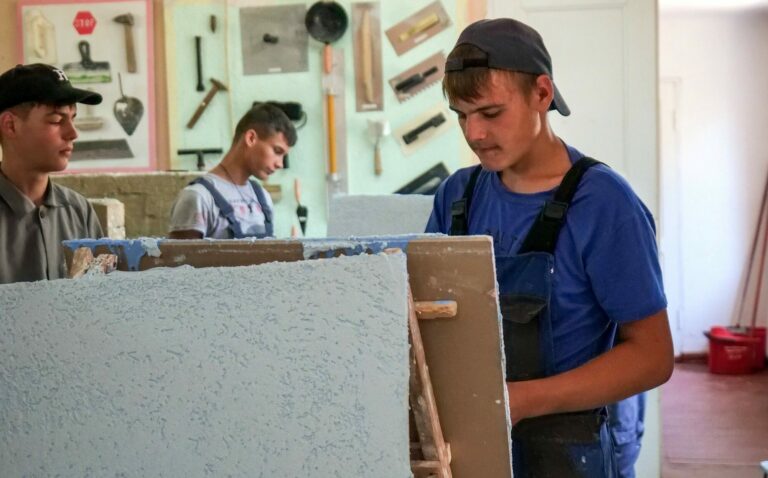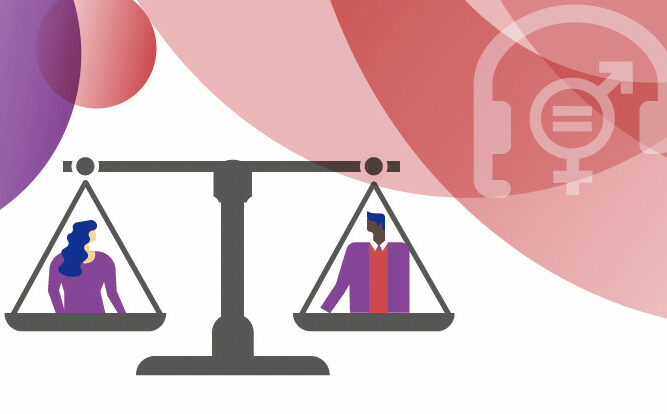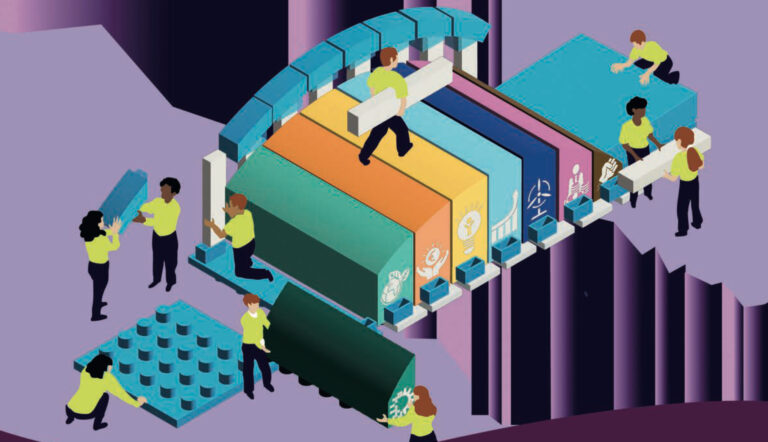
National nursery fund. A decisive step for reconciling family and professional life
The labor market in Moldova is the area with the greatest inequalities, which mainly affects women. According to NBS data for 2020, the activity rate of women is 9 pp lower than that of men, and the employment rate is 8 pp lower. At the same time, a third of women aged 15-29 do not work, study or receive any training, compared to 19% of young men.
The inequitable division of care responsibilities causes women to withdraw from the labor market. The employment rate of women aged 25-49, who have children aged 0-6 years, is 29 pp lower compared to men of the same status and 26 pp lower compared to women without children of preschool age (36% vs. 62%). This tells us about the fact that women are forced to withdraw from the labor market with the appearance of children, assuming full care responsibilities.
Limited access to daycare services explains part of the inactivity of women with children in the labor market. In 2020, on average, only 11% of the total number of children up to the age of 3 were enrolled in early childhood education institutions. The low access rate is determined by the limited number of places at nurseries or nurseries – kindergartens, the conditions of activity of these institutions, the territorial distribution, etc., which makes it difficult for parents to enter or return to work, especially mothers. Although legislative changes have been made that allow parents to return to the labor market earlier (options to benefit from the allowance for child rearing, the possibility to return to the labor market while keeping the allowance, reducing the age for children to be enrolled in nurseries and kindergartens), parents cannot benefit from these provisions.
An extremely small number of new nurseries have been opened and made available to the population in areas with children of the right age, especially nurseries financed (co-financed) from the state budget or local budgets. Thus, even if parents have the opportunity to return to work more quickly, the adjustment and expansion of the infrastructure needed to provide children aged between 2 and 3 with places in early education institutions such as nursery schools is dragging.
To remedy the situation, it is necessary to create more nurseries and to allocate more resources for this purpose by the central authorities. The allocation of resources must cover both the costs of creating, expanding and improving nursery services, as well as their maintenance. In this sense, it is recommended that the Government assume a rate of inclusion of children in nursery services of at least 30% until the year 2026. This would mean that approximately 15 thousand more children between the ages of 0 and 3 will had access to such services – the share of children aged 2-3 included in these services would increase from approximately 30% to 60%, and the share of children aged 1-2 included in these services would increase to 30%
It is recommended to use the already existing financial infrastructure, for the creation/revival of an adequate nursery system, financed from budgetary means and from external sources, with a predefined destination, through an already existing specialized fund (FISM). The program of technical and financial assistance granted by the Government of Romania for preschool institutions in the Republic of Moldova (administered by FISM) provides for non-refundable financial aid in the amount of 100 million euros granted by Romania to the Republic of Moldova. Based on the experience of implementing this program, it is recommended to establish a fund for nurseries.
A Nursery Fund is an effective approach as it allows resources to be redirected on demand, i.e. where they are most relevant. Thus, the LPAs of 1st level have to develop project proposals in order to benefit from financial support. The requirement to co-finance investments at least 15% will serve as another additional indicator in determining the need and desire of local authorities to carry out such projects in the locality.
NATIONAL NURSERY FUND. A decisive step for reconciling family and professional life. Partnership Center for Development, Chișinău, 2022.
MOST READ
RELATED

EU4Culture: Practical online course on successful grant proposal writing

EU4Youth Newsletter: Welcome to the EU4Youth Stakeholder Hub!

EU4Youth develops Youth Wiki reports on Youth Employment and Employability

EU4Gender Equality Reform Helpdesk’s support (2021-2024) for Moldova

SME Policy Index: Eastern Partner Countries 2024 – Building Resilience in Challenging Times
More campaign pages:
Interested in the latest news and opportunities?
This website is managed by the EU-funded Regional Communication Programme for the Eastern Neighbourhood ('EU NEIGHBOURS east’), which complements and supports the communication of the Delegations of the European Union in the Eastern partner countries, and works under the guidance of the European Commission’s Directorate-General for Neighbourhood Policy and Enlargement Negotiations, and the European External Action Service. EU NEIGHBOURS east is implemented by a GOPA PACE-led consortium. It is part of the larger Neighbourhood Communication Programme (2020-2024) for the EU's Eastern and Southern Neighbourhood, which also includes 'EU NEIGHBOURS south’ project that runs the EU Neighbours portal.

The information on this site is subject to a Disclaimer and Protection of personal data. © European Union,







